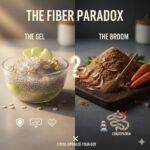First, when people say “weight” gain, they are usually referring to fat gain, so this is really what I’m referring to here, but for the sake of avoiding confusion, I will (mostly) use the more common term “weight” gain in this post.
I have trained thousands of people since I became a personal trainer in 1986, and have successfully helped people lose literally tons of cumulative weight, so here are the top seven weight gain reasons I have observed with corresponding solutions.
- Dehydration. Experts estimate about 85% of the people walking around nowadays are clinically and chronically dehydrated because our thirst mechanism doesn’t work very well. When we are dehydrated, our kidneys aren’t working right, so our liver has to step in and help them out. The liver has over 500 metabolic functions, so guess what it’s not doing while it’s busy helping out the kidneys? Yep, and when it has to put its metabolic functions on hold, that obviously, and drastically, slows our metabolism – especially our fat-burning metabolism. Click here to read more about the importance of hydration. To calculate your hydration needs (assuming you are between 100-250 lbs.), take your bodyweight in pounds, divide that in half, and drink that many ounces per day, spaced throughout the day as best you can.
- Not tracking your food. When people keep a food diary of every solid and liquid that passes their lips throughout the entire day, they come to a keen awareness of what they are really consuming. Humans notoriously underestimate what and how much they eat, while overestimating their exercise and activity level. A food tracker app is the best way to keep a diary (click here for my favorite), but even just writing things down on a notepad throughout the day and reviewing it in the evening, can be enough to change your habits from mindless to mindful.
- Eating too late in the day. The middle of the day is when we are most metabolically active and the most sensitive to insulin, but that drops drastically and rapidly after lunch, so eating a late dinner or evening snack will allow the fat cells to store more dietary fat than from meals earlier in the day. Even worse, eating right before bed, or especially a midnight snack, causes poor digestion while you’re sleeping, and maximum storage of dietary fat, not to mention interferes with your sleep quality (which is #5 below). The best timing and volume is a medium breakfast, a large lunch (but never overeating), and an early light dinner.
- Poor calorie combinations. Protein by itself, is a very high metabolic food and turns your metabolism up. Fat by itself, doesn’t do much to your metabolism, but at least it won’t spike your insulin, which is the hormone that turns on the cell storage ability of macronutrients. Glucose (sugar, starch, and other fast carbs) is the king of spiking your insulin, shifting calorie storage into high gear. Now I’m sure you can see how combining glucose with fat will encourage cellular fat storage more than any other calorie combination. This is why foods like candy, donuts, pasta with cream sauce, etc. are the fastest calorie combinations to store fat. The best macronutrient combination is veggies and protein, so start with those, eat slowly, and end with other macronutrients.
- Poor sleep. Too little sleep or poor quality sleep messes with your satiety hormones which makes you hungrier the next day, not to mention depresses your metabolism, which is a 1-2 punch in the whole fat, gaining world. Bad sleep also messes with your hormones – most notably elevates your cortisol, which makes it much harder to burn fat and much easier to store fat. Click here for some great sleep hacks.
- Dieting without exercise. Most people just cut their calories to lose weight, and that will work temporarily in the short term, but the weight they lose will come from fat and muscle, which will leave them with a slower metabolism at the end of their “diet.” This is the main reason for the weight loss yo-yo. Plus, when you only cut calories out of your diet, you’re only getting the “benefit” of fewer calories. If you were to burn the same number of calories with exercise, however, the benefit is about 50% more for the same amount of calories. This is due in the short term, to excess calories being burned after the exercise is finished, and in the long term because you’re putting on more muscle and/or changing the quality of your muscle (e.g., muscle density), which raises your overall metabolism, allowing you to burn more fat throughout the whole day, including at night while you’re asleep.
- Doing the wrong kind of exercise. Walking is a great activity but is not really exercise. The “workouts” you see at your local mega gym are also great activity, but also not really exercise. To get the benefit of weight loss – and the right kind of weight loss – where you are gaining muscle and losing fat at the same time, you must do vigorous exercise. The best kind of exercise for this purpose is high-intensity strength training, where you are going to complete muscle fatigue, and high-intensity, interval training, which is technically considered “cardio” but also strength training because of its muscle fatigue component. Both of these training styles will build muscle, and/or improve the density of the muscle, as well as the mitochondria, and vascularity of muscle, which all contribute to burning fat at an exponentially higher rate than physical “activity” both during and after the exercise is over. This improved muscle mass, density, and quality also increases your overall metabolism, causing you to burn more fat all day every day and all night every night.
Notice that exercise is mentioned twice here (because they are two distinct points), and also listed as the last two. This is because it is wise to get the other things in line first if you are starting your journey from scratch. If you do them in order of the steps above, each subsequent step will multiply itself on the last step much like compounding interest, and result in a truly magical formula for amazing results!









